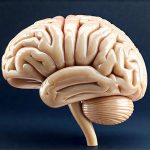The quest for optimal mental clarity is a universal one. In a world demanding constant focus and processing power, many seek ways to sharpen cognitive function, improve concentration, and reduce brain fog. While strategies like mindfulness, adequate sleep, and regular exercise are frequently touted – and rightly so – an often-overlooked avenue for enhancing mental acuity lies in the realm of nutrition. Specifically, exploring how elimination diets might play a role in improving cognitive performance is gaining traction as people realize the profound connection between gut health, inflammation, and brain function. This isn’t about quick fixes or restrictive fad diets; it’s about thoughtfully investigating potential food sensitivities that may be unknowingly impacting neurological wellbeing.
The modern diet, often characterized by processed foods, high sugar content, and a lack of nutritional diversity, can contribute to systemic inflammation and gut dysbiosis – an imbalance in the gut microbiome. This disruption can affect the gut-brain axis, a bidirectional communication pathway between the gastrointestinal tract and the brain. When this connection is compromised, it can manifest as cognitive issues like difficulty concentrating, memory lapses, mood swings, and even anxiety or depression. Therefore, identifying and eliminating foods that trigger an inflammatory response or disrupt gut health could potentially alleviate these symptoms and foster improved mental clarity for some individuals. Why elimination diets sometimes fail is a consideration as you begin this process.
The Gut-Brain Connection & Inflammation
The intimate relationship between the gut and the brain is no longer a theoretical concept; it’s supported by extensive scientific research. The gut microbiome, comprising trillions of bacteria, fungi, viruses, and other microorganisms residing in our digestive tract, plays an essential role in overall health, including mental wellbeing. These microbes influence brain function through several mechanisms: – Production of neurotransmitters like serotonin and dopamine – crucial for mood regulation and cognitive processes. – Modulation of the immune system – a significant portion of which resides in the gut. Chronic inflammation, often stemming from dietary choices or imbalances in the microbiome, can have detrimental effects on the brain. It’s been linked to neurodegenerative diseases, depression, anxiety, and impaired cognitive function.
Inflammation isn’t always negative; it’s a natural part of the body’s defense mechanism. However, chronic low-grade inflammation is where problems arise. Foods that commonly contribute to this type of inflammation include processed foods, sugary drinks, refined carbohydrates, excessive amounts of red meat, and artificial additives. Individuals may not even realize they are reacting negatively to certain foods, experiencing subtle symptoms like bloating, fatigue, or skin rashes which don’t immediately connect to their cognitive state. An elimination diet aims to identify these hidden triggers by temporarily removing suspected inflammatory foods and then systematically reintroducing them to observe the body’s response. Benefits of elimination diets for diagnosis can be significant, helping pinpoint sensitivities.
Furthermore, intestinal permeability – often referred to as “leaky gut” – can exacerbate inflammation. When the lining of the intestines becomes compromised, undigested food particles and toxins can leak into the bloodstream, triggering an immune response and contributing to systemic inflammation that impacts brain function. Restoring gut health through dietary changes is therefore a critical component in supporting cognitive clarity.
Identifying Potential Food Sensitivities
Pinpointing specific food sensitivities can be challenging without a systematic approach. Many people attempt self-diagnosis based on vague symptoms or online information, which often leads to inaccurate conclusions. A properly structured elimination diet, ideally guided by a healthcare professional, is the most effective way to identify triggers. The process generally involves these steps: 1. Elimination Phase: Remove commonly allergenic and inflammatory foods for a defined period (typically 2-3 weeks). Common culprits include dairy, gluten, soy, corn, eggs, nuts, shellfish, and sugar. 2. Reintroduction Phase: Gradually reintroduce each eliminated food one at a time, carefully monitoring for any adverse reactions. This is crucial as symptoms can be delayed, appearing hours or even days after consumption. 3. Documentation: Keep a detailed food diary recording everything consumed, along with any physical and mental symptoms experienced. This provides valuable data to identify trigger foods.
It’s important to distinguish between food allergies and food sensitivities. Allergies involve an immediate immune response that can be life-threatening, whereas sensitivities are typically less severe but can still cause significant discomfort and cognitive impairment. Symptoms of a food sensitivity might include headaches, fatigue, bloating, skin rashes, brain fog, or mood swings. The key is to pay attention to how your body responds after reintroducing each food. How food sensitivities influence mental clarity provides additional insight into this connection.
The reintroduction phase demands patience and meticulous observation. Don’t simply dismiss mild symptoms; even subtle changes in energy levels, concentration, or mood can indicate a sensitivity. It’s also vital to reintroduce foods in their whole, unprocessed form whenever possible – for example, introducing plain yogurt before attempting gluten-containing bread – as processing can alter how the body reacts.
The Role of Specific Foods & Nutrients
Certain foods are more likely to contribute to inflammation and cognitive impairment than others. Gluten, a protein found in wheat, barley, and rye, is a common trigger for many individuals, even without celiac disease or gluten intolerance. Similarly, dairy can cause issues for those with lactose intolerance or dairy sensitivities. Soy, corn, and eggs are also frequent culprits. However, it’s important to remember that food sensitivities are highly individual; what triggers one person may not affect another. Can food intolerances cause eye puffiness? illustrates how varied the symptoms can be.
Beyond eliminating potential problem foods, focusing on nutrient-dense foods is crucial for supporting brain health. Omega-3 fatty acids found in fatty fish (salmon, tuna, mackerel), flaxseeds, and chia seeds, are essential for brain function and have anti-inflammatory properties. Antioxidant-rich fruits and vegetables protect against oxidative stress, which can damage brain cells. Adequate hydration is also paramount; even mild dehydration can impair cognitive performance.
Furthermore, certain nutrients play a vital role in neurotransmitter synthesis and nerve impulse transmission. B vitamins, for example, are essential for converting food into energy and supporting brain function. Magnesium is involved in over 300 enzymatic reactions in the body, including those related to nerve function and relaxation. A deficiency in these key nutrients can contribute to cognitive issues, highlighting the importance of a balanced and nutrient-rich diet.
Beyond Diet: Lifestyle Factors & Considerations
While elimination diets can be a powerful tool for improving mental clarity, they are not a standalone solution. Lifestyle factors play an equally important role. Chronic stress significantly impacts brain function and gut health, exacerbating inflammation and impairing cognitive performance. Managing stress through techniques like meditation, yoga, or spending time in nature is crucial. Can lifestyle changes reduce reactions? explores this further.
Similarly, adequate sleep is essential for restoring brain function and consolidating memories. Aim for 7-9 hours of quality sleep each night. Regular exercise has also been shown to improve cognitive function, reduce inflammation, and boost mood. The type of exercise isn’t as important as consistency. Why even healthy diets can cause discomfort is a reminder that balance is key.
It’s vital to approach elimination diets with a holistic mindset. Don’t view it as a restrictive punishment but rather as an opportunity to understand your body better and optimize your health. Working with a registered dietitian or healthcare professional is highly recommended, especially if you have underlying health conditions or are taking medications. They can provide personalized guidance and ensure that the diet is safe and effective for your individual needs. Finally, remember that this is a journey – be patient with yourself, listen to your body, and celebrate small victories along the way. The effectiveness of elimination diets for IBS shows how impactful these changes can be.


















